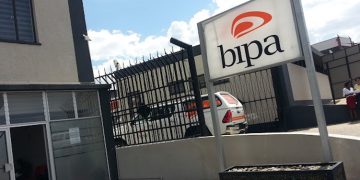
The Bank of Namibia (BoN) has called on fellow corporate entities to support the Science, Technology, Engineering, Arts, and Mathematics (STEAM) education initiatives.
This appeal comes in the wake of the recent STEAM Expo, a collaborative effort between the Bank of Namibia and MindsInAction, aimed at fostering innovation and preparing Namibian youth for the demands of a digital future.
Speaking at the Expo, BoN Deputy Governor Leonie Dunn said the critical importance of STEAM education is in equipping students with the necessary skills to thrive in an increasingly technology driven world and that there is a need for concerted efforts from all sectors to ensure broader exposure to STEAM programmes across Namibia’s 14 regions.
“STEAM education is foundational for creating a society that is both digitally proficient and grounded in knowledge. The STEAM Expo not only highlights our students’ successes but also underscores our ongoing commitment to nurturing innovation and excellence within education,” Dunn said.
She also said the programme has already impacted over 240 learners from key regions, but there is a need to expand the programme’s reach to empower more youth nationwide.
“As Namibia prepares to become an industrialised nation by 2030, it is crucial to capacitate students with skills in robotics, automation, coding, 3D-printing, IT electronics, as well as machine tooling. These efforts will further assist the country in achieving its goals of ensuring that Namibia becomes a knowledge-based nation,” she said
Notably, the Expo served as a platform where chosen twenty learners showcased their innovative concepts and exchanged knowledge acquired from the STEAM programme, with a particular focus on collaborative problem-solving for community challenges.
“Learners were tasked to create tech-based solutions for problems faced in Namibia across different industries. Among the various solutions, participants pitched systems for detecting spoiled food, solar-powered vehicles, rhino-tracking devices to curb poaching, air quality monitoring systems to mitigate pollution, water purification stems, intelligent traffic systems, and systems for testing soil fertility,” a statement by the Bank of Namibia stated.
A panel of expert judges awarded the leading projects from the participating schools, granting first, second, and third prizes to the following: Wennie du Plessis Secondary School for their Air Monitoring System (N$3,000), Nuuyoma Secondary School for their Spoilt Food Detecting System (N$2,000), and PK de Villiers Secondary School for their Rhino-Tracking Device (N$1,000).













